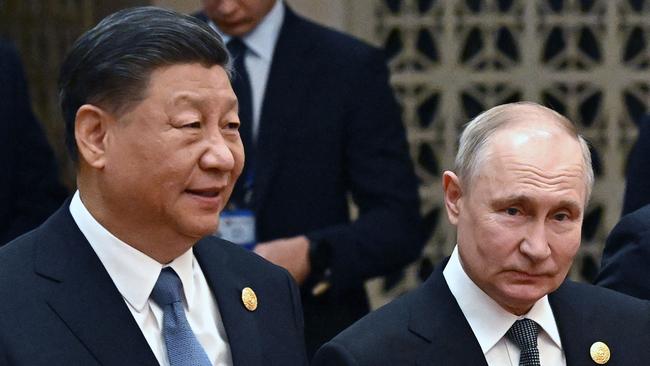
As well, he was drawing attention to the fact that the post-1945 world – as recently as the start of 2020, more safe, more free, more fair, and more rich than at any time in history, thanks to the Pax Americana – is now past. And that the globalised world, ushered in by the fall of the Berlin Wall, and the economic opening up of China, is also now past.
Because the world is again dividing into two camps: the restless, revisionist dictatorships – communist, militarist, or Islamist –that are more than ready to use force to achieve their goals; versus the democracies that still believe people should be able to choose how they live, and how they’re ruled, but aren’t so sure whether this can or should be defended.
The worry is that this new Cold War will be much harder to win than the old one; and that it might be less likely to stay more cold than hot. For one thing, China is a more formidable competitor than the old Soviet Union ever was. Unlike Russia, it’s an industrial giant, now with a military to match. It’s become deeply integrated into the global economy and its diaspora is everywhere.
It has to be said, though, that Taiwan – free, liberal, democratic, creative Taiwan – plus the millions of well assimilated ethnic Chinese in countries like Australia, prove that there’s no totalitarian gene in the Chinese DNA, which is why Beijing is so ruthlessly, relentlessly, indefatigably set on crushing it; and intimidating them.
For another, the Islamists controlling Iran, whose ilk might readily come to dominate the entire region, are more driven by apocalyptic religion than considerations of national interest. And it’s hard to deter people who have convinced themselves that martyrdom is not just something they risk but their very destiny.
And there’s something of that with Putin too. He’s sure he’s on a mission from God to recreate greater Russia, avenging the most monumental disaster of the 20th century, he thinks: the disintegration of the old Soviet Empire.
It’s this comparative absence of rationality that could make war harder to avoid in this latest Cold War than in the last.
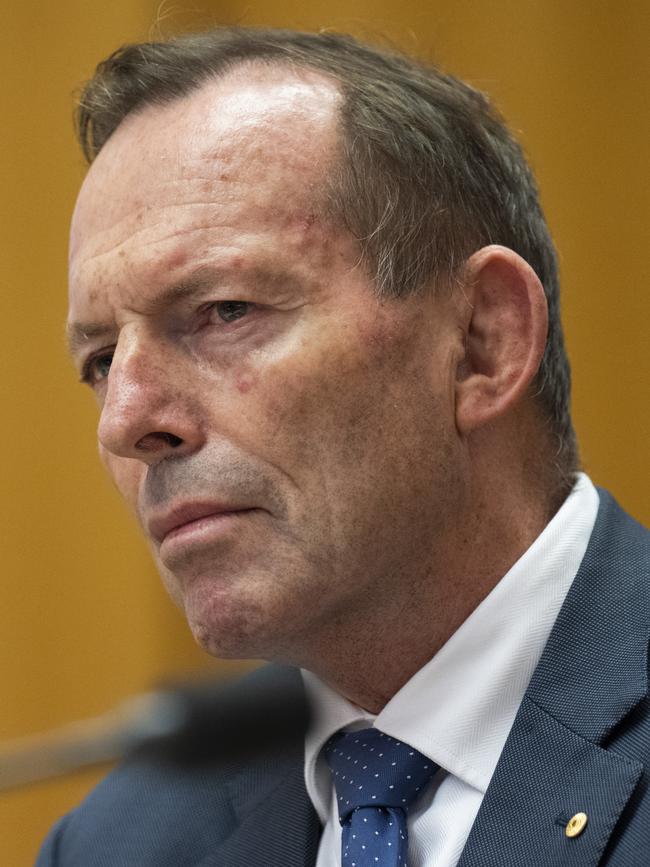
And that’s assuming that the democracies are strong-willed enough to pursue deterrence rather than appeasement.
Right now, the US congress’s failure to vote more funds and weaponry for Ukraine; the global pressure on Israel to end its war against Hamas because the terrorists use human shields; and the ongoing strategic ambiguity over whether to defend Taiwan – this enticing weakness of will – is encouraging all the enemies of freedom. As long as the Ukrainians are militarily inhibited relative to their aggressor, forbidden to launch long range attacks while Russia pulverises Ukraine’s cities and infrastructure, Putin eventually will win; and he won’t stop there. The least bad outcome would be a new iron curtain through Eastern Europe, while Putin probes for his next victim.
As long as there are terrorist states dedicated to the destruction of Israel, the region’s only liberal democracy, and ultimately to the creation of a ghastly global caliphate, the risk will be ever-present of wider war, possibly nuclear, in the Middle East.
And we can be certainabsolutely certain, as long as there’s a hard-line communist regime in Beijing, that there will be an attempt to seize Taiwan. If possible, without a fight, through subversion and cybersiege; otherwise through a blockade; but eventually through the mother of all bombardments and the armed occupation of the ruins.
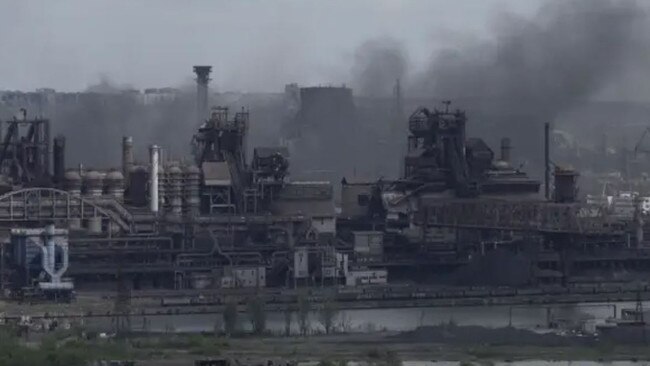
Because this is what the Chinese leadership repeatedly threatens; and if there’s one sure thing about all those whose authority rests on fear: they don’t make threats they won’t carry out.
If the US fails to defend Taiwan, the whole global order is deranged, as former US allies make the best accommodations they can with their challengers; or alternatively arm themselves to the teeth in the harsh new world that the Pax Americana no longer sustains. But if America does defend Taiwan, there will be a Chinese attack on all the US bases in the western Pacific, including in Japan and Australia, and most likely general war as every discontented dictatorship takes advantage of the chaos.
And here’s something else to consider: the more the US is bogged down in any one of the world’s key trouble spots, the more likely it is that someone, somewhere, will make the most of the distraction.
That’s why it can’t just be the US that’s relied upon to keep the peace, such as it is, because it’s free-riding on America’s strength and benevolence that’s helped to create our current predicament and drives the isolationism now rampant inside the Republican Party.
At one level, the problem we have, now that the war drums are beating again, in a way they haven’t for generations, is that the democracies’ armed forces are dreadfully run down.
When Putin attacked Ukraine, Germany had hardly any operational tanks or planes. The mighty Royal Navy, with 50 frigates and destroyers a quarter century back, now has just 16; and the British army is at its smallest in two centuries. Even the US Navy is now outnumbered by the Chinese – which is concentrated in nearby seas, not dispersed around the globe, plus there’s the massive Chinese coastguard and maritime militia.
The US defence industry currently produces just 550 patriot anti-aircraft missiles a year when, as Ukraine shows, dozens might be needed every single day.
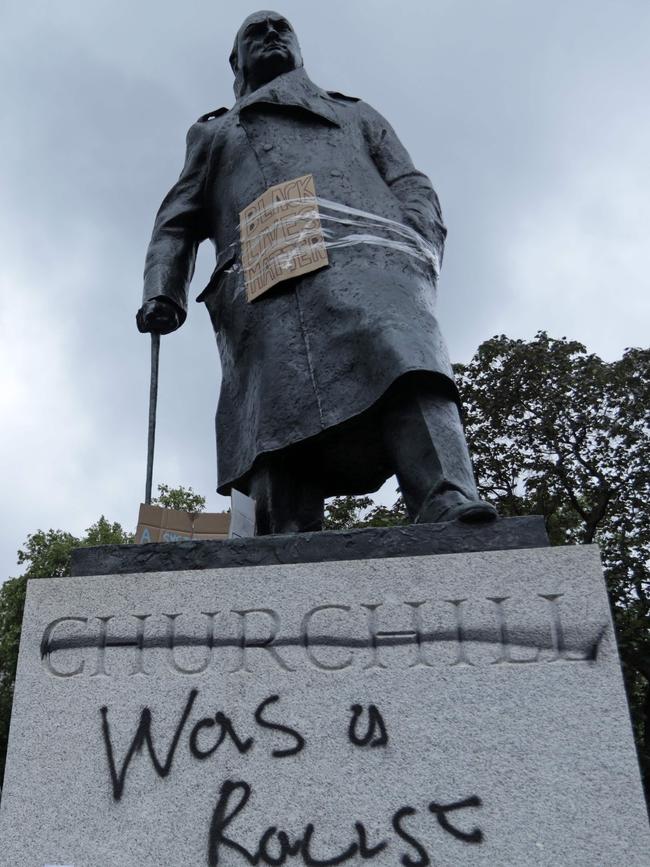
Meanwhile, Australia has just refused to provide a frigate for the Red Sea, the first time in generations we’ve denied a US request for military help, possibly because of manning issues or doubts that it could defend itself against swarming drones.
This is replicated in almost every democracy; but not in China, which is embarked on the greatest military expansion in peacetime history; or Russia, that now devotes 40 per cent of its GDP to war fighting; or countries like North Korea, whose citizens sometimes starve, but has intercontinental ballistic missiles.
By contrast, our countries are massively subsidising wind and solar energy, and de-industrialising in the process, because we still think that the greatest threat to our wellbeing is increased atmospheric carbon dioxide, and a possible degree or two of temperature rise several decades hence. The Ukrainians and the Israelis, of course, aren’t ruled by such notions; although a couple of years back, even the otherwise admirably realistic Taiwanese were still planning to close their one nuclear power plant. But there’s a much bigger problem than that.
Even Neville Chamberlain, who declared that he’d achieved peace in our time, increased aircraft production at breakneck speed after the Munich Agreement. Yet we’re still sleepwalking through lotus land, thinking that the leaders of other countries are as preoccupied as ours with hospital queues and with disability service improvements, not national security; and wanting to believe that because war is unthinkable to us, it must be equally unthinkable to everyone else.
Naturally, we shy from the thought that Mariupol or Gaza could be us. But that’s what beckons if deterrence fails.
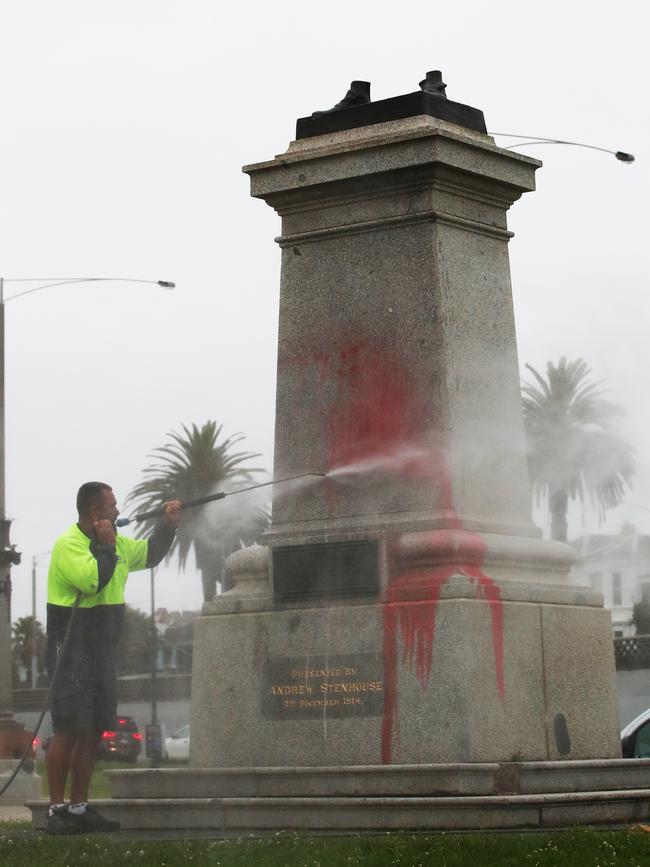
And it gets worse. To the people who are toppling the statues of confederate generals in America; and spray-painting Churchill’s statue in London; and sawing off Captain Cook’s statue in Melbourne; and proclaiming in most Western cities that Palestine must be free from the river to the sea, the global villains aren’t Putin and Xi, and those who post videos of themselves butchering babies – they’re the countries responsible for the rule of law, the mother of parliaments, the Industrial Revolution, the emancipation of minorities, and the world’s common language.
Democracies can’t fight without weapons; but they won’t fight without the belief that we’re worth fighting for; so it’s actually our moral disarmament, rather than our military decrepitude, that’s behind the looming catastrophe.
Of course, all out war using modern weapons could lead to a new stone age; yet a world dominated by communist China, or by apocalyptic Islam, could lead to a new dark age, with billions of people treated like the Uighurs or the Yazidis. That’s why the current world order, for all its faults and imperfections, must be striven for at almost any cost.
The immediate need is to re-arm Ukraine, stand by Israel, position more ships and planes into East Asia, urgently excise China from critical supply chains, swiftly rebuild our defence industrial infrastructure, be ready to mobilise armed forces that adversaries would shrink to take on, and better befriend India which should one day be America’s equal as a bastion of democracy.
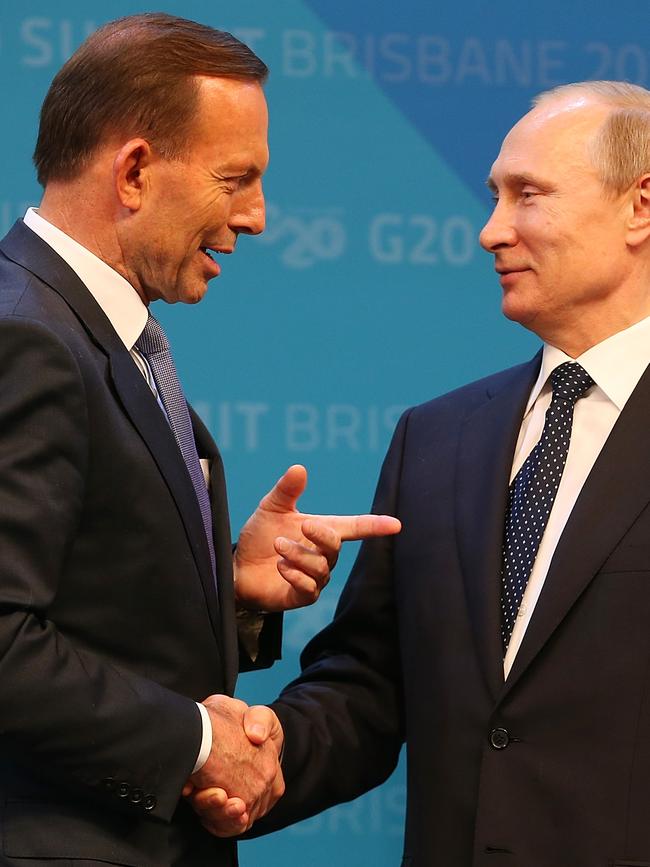
But for that to happen we need first to be sure that our countries are worth preserving; to me, a no brainer, but not, perhaps, to generations steeped in notions of white privilege and the evils of colonisation. We know that the Israelis and the Ukrainians will fight for the freedom and the nationhood they’ve hardly ever had. But what of us who’ve had it so good for so long?
Maybe we can bluff our opponents into leaving us alone forever but I suspect that Churchill had it right when he said, after Munich: “This is the first foretaste of a bitter cup which will be proffered to us year by year unless by a supreme recovery of moral health and martial vigour (note that – moral health and martial vigour) we … take our a stand for freedom as in the olden time”.
To stand for freedom, that’s what’s most needed now; and the more that do, the better all will be.
Tony Abbott is a former prime minister of Australia. This is an edited version of a speech he delivered to The Legatum Institute in London.







When the British defence minister Grant Shapps recently warned that the world had moved from a post-war to a pre-war era, I doubt he meant that war was immediately likely; more that it was distinctly possible, maybe even probable, if current trends persist, with the balance of military strength between the main democracies and their challengers becoming steadily worse.